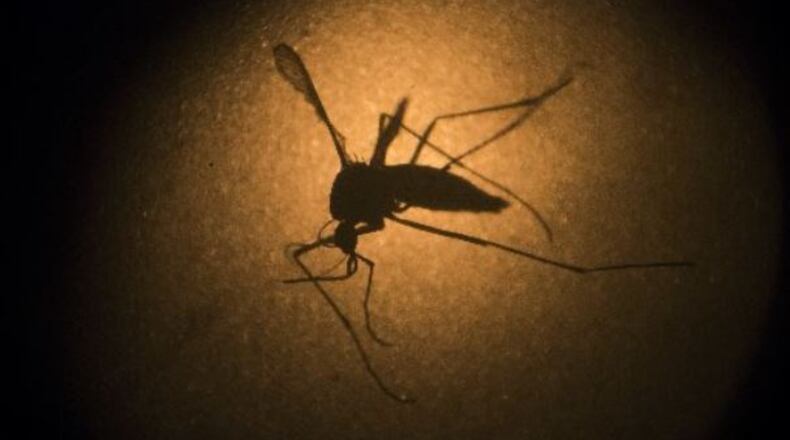The Zika virus has gained a startling foothold in Puerto Rico based on the number of blood donations that have tested positive for the disease, federal health officials said Friday.
Since blood donation centers in the U.S. territory began testing the blood supply for Zika in early April, the number of positive results has spiked, leaders from the Centers for Disease Control and Prevention said in a press conference. Last week marked the biggest gain.
So far, 68 blood units out of 12,777, collected since April, have shown an active infection, said Dr. Tom Frieden, CDC director. But in just the last week, 1.1 percent of all blood collected during that week showed signs of live Zika. That’s up from 0.7 percent two weeks ago.
Local health officials in Puerto Rico and the CDC have said if the virus follows the pattern of other mosquito-borne outbreaks in the territory, such as chikungunya, up to 25 percent of the island's population will get infected with Zika this year. That's a frightening forecast for pregnant residents or pregnant travelers to the island. The CDC has advised pregnant women or those who want to get pregnant not to travel to any of those countries.
Frieden said blood donations are the best-real-time indicator of how the virus is spreading. Because of the rise in infections, "thousands of pregnant women" could be infected with Zika, which could lead to "dozens or 100s" of babies born with microcephaly or other horrible birth defects, he said. Zika, which is spread by mosquitoes, causes microcephaly, a condition which causes the skull of a fetus to collapse around its underdeveloped brain. The virus can also cause severe sight and hearing problems as well as miscarriages and still-births. An infection is usually stealth, with most people showing no symptoms.
A new nucleic acid test developed by a Roche Molecular Systems, Inc., California drug company, is being used by blood collection centers in Puerto Rico to detect the virus. This test picks up live infection rather than antibodies from a previous infection. Any Zika-positive blood is discarded, the CDC said.
While there haven’t been any cases of local transmission in the continental U.S., the blood donor issue is already being considered. The Gulf Coast Regional Blood Center in Houston, Texas is using the Roche test. Texas is one of three states the CDC has said is most likely to see local transmission of the virus first, since Zika is already present in neighboring Mexico. Out of about 9,000 blood donations at Gulf Coast Regional so far, none have tested positive for Zika, Frieden said.
All of this raises the question of how other states across the nation are screening blood for Zika, since only five states, Alaska, Idaho, North Dakota, South Dakota and Wyoming have reported no travel-related cases of the disease. So far, there have been 755 travel related cases across the nation. Georgia has had 20.
For now, U.S. blood donation centers are relying on potential donors to disclose during screening whether they’ve had possible Zika exposure, said Frieden and Dr. Matthew Kuehnert, director of the Office of Blood, Organ and Other Tissue Safety at the CDC.
Donation centers have been excluding people who've traveled to Zika-affected areas or who have had sex with someone who has traveled to such a region, Kuehnert said. The list of countries with active infections is ever growing and now includes virtually every country in South America, Central America and the Caribbean.
Should a case of local transmission arise in the mainland U.S., state and local blood donation centers have a “comprehensive plan” to address the nation’s blood supply, Kuehnert said, though he did not elaborate on the plan.
“We don’t think there’s a risk to the blood supply,” Frieden said, but what’s happening Puerto Rico does “provide a window,” into how quickly the virus spreads.
About the Author
Keep Reading
The Latest
Featured



